|
|
|
|
| Campia Turzii Bacau Boboc Otopeni Deveselu Fetesti Mihail Kogalniceanu MiG-21 LanceR |
| Romanian Air Force - Forţele Aeriene Române Craiova July 2006 |
| In May 1971 'JUROM' agreement was signed by Yugoslavia and Romania to jointly build a light subsonic ground attack and reconnaissance aircraft for their respective air forces. In Yugoslavia the resultant aircraft was the Soko J-22 Orao and in Romania it was known as the IAR-93. The Rolls-Royce Viper engine was chosen for the powerplant as Soko had previously built it under license. The first flight of the IAR-93 was on October 31, 1974 from Bacau. Avioane Craiova SA as it is now known, was established in 1972 and started full production at its Craiova factory from 1975. The two-seat IAR-93DC first flew on January 23, 1977 but was lost due to tail flutter ten months later. The IAR-93A eventually entered service in 1981. IAR-93 Production There were four prototypes, two IAR-93As (serials 001 and 004) and two IAR-93DC (002 and 003) two-seat trainers. The first prototype (001) was lost in September 1979 falling an engine flame out. 26 IAR-93As (109-119 and 150-164) and nine IAR-93DCs (005-008 and 180-184) supplied with non-afterburning Viper 632 turbojets. 15 single seat IAR-93MB (201-215) with basic Viper 632 engine (Motor de Baza) but with an IAR-93B airframe. Deliveries of the MB version started in 1982. The IAR-93B with its recently developed after-burning Viper 633 engine entered service in 1987. 27 IAR-93Bs (200 the prototype and 216-241) were built as single seats with another six two-seat DC versions (600-605). By 1989 the 67th Fighter-Bomber Regiment (Grupul 67 Aviatie de Vânâtoare-Bombardament) and its two squadrons were flying the IAR-93 at Craiova. The 49th Fighter-Bomber Regiment at Lanca also had a squadron of IAR-93. In 1992 with a number of incomplete aircraft for an outstanding order for Yugoslavia, civil war started in Yugoslavia. A subsequent UN embargo on arms sales effectively ended production of the IAR-93. On April 9, 1998 serial 219 crashed at Ghercesti, near Craiova. This was the last flight for the type. The Romanian Government made the decision to retire the IAR-93 in 1998 after persistent problems and many of the surviving aircraft moved to the 322 Aviation Maintenance Centre (Centrul de Mentenanta 322 Aviatie) at Craiova. The engines and control systems were removed and they were placed in open storage. Avioane Craiova SA is currently producing the IAR-99 Soim at Craiova. IAR-93 Survivors in 2024 002 Bucharest Aviation Museum (Muzeul Aviatiei, Bucharest) 109 Perisor, Dolj, Henri Coanda Museum 112 Bucharest Aviation Museum 114 Bucharest Aviation Museum 153 Bucharest Military Museum 157 Museum of Aviation in Koice, Slovakia 159 Bucharest INCAS Institute, (the birthplace of IAR 93 and IAR 99) 163 Craiova 182 Bucharest Aviation Museum (Muzeul Aviatiei, Bucharest) 201 Timisoara / Calea Sagului 205 Arsenal Park, Orastie 206 Slovenia Pivka Museum 207 Arsenal Park, Orastie 208 Arsenal Park, Orastie 214 Timisoara airport 215 Colonesti, Olt 216 Balabanesti, Galati Preserved in a small village, painted white and not in very good shape. 215 Colonesti, Olt 217 Rosiori de Vede exhibited 220 Facultatea de Mecanica, Lasi 222 Siria (small airfield) 223 Gagu, Dascalu 229 Vadeni, Braila Airport 232 Bucharest Military Academy 241 Current museum 600 Brasov Aviation Academy 613 Craiova International Airport |
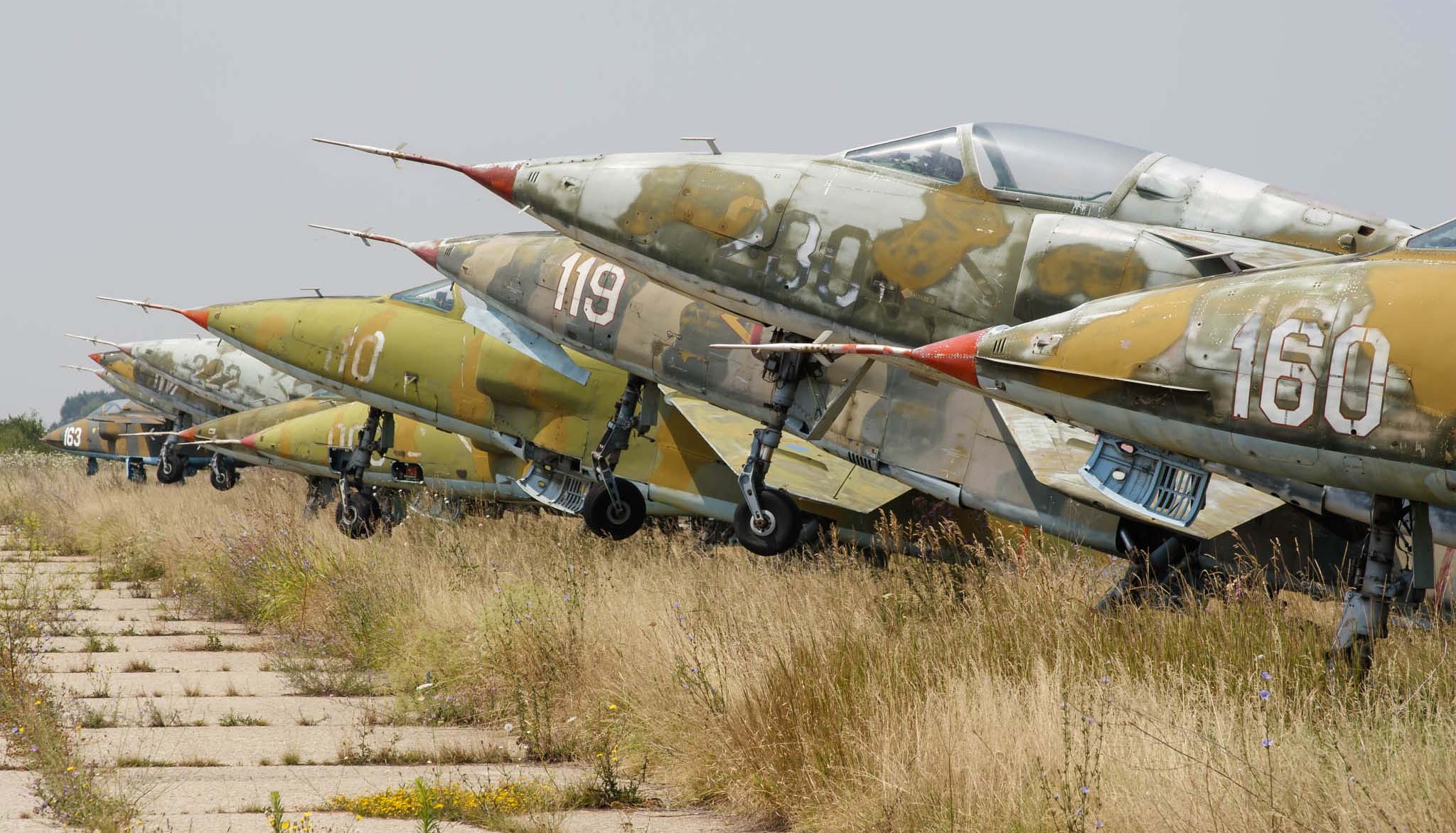 |
| Part of the IAR-93 line along the side of the disused taxiway. |
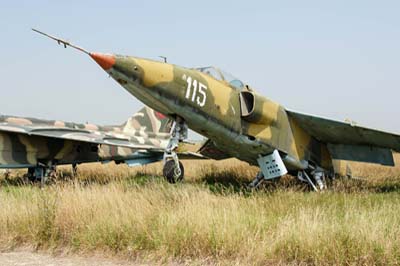 |
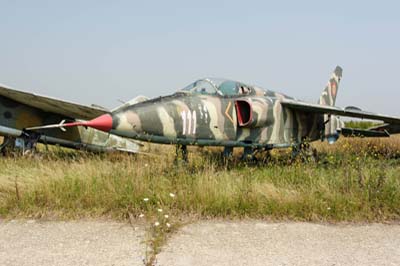 |
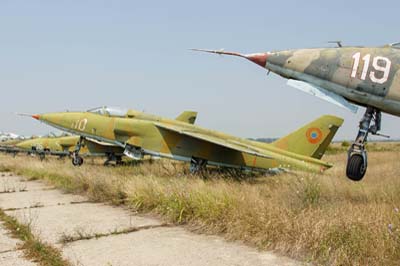 |
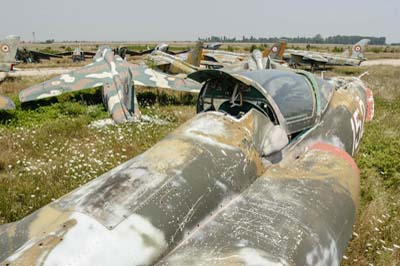 |
| Left to right: IAR-93As (115, 111, 110 and 152). |
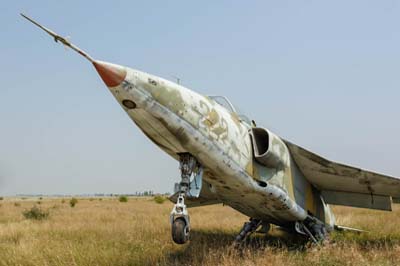 |
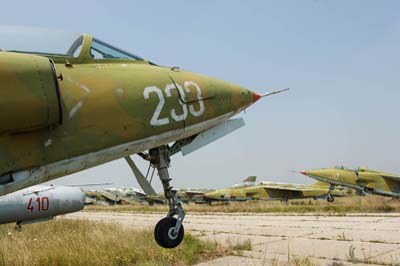 |
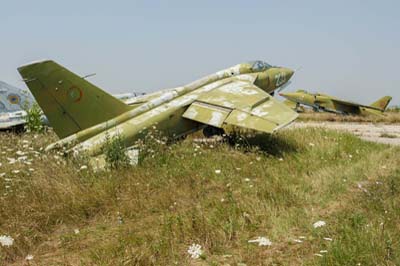 |
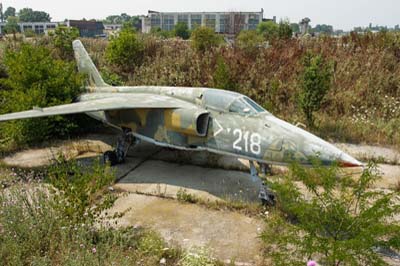 |
| Left to right: IAR-93Bs (222, 233 x2 and 218). |
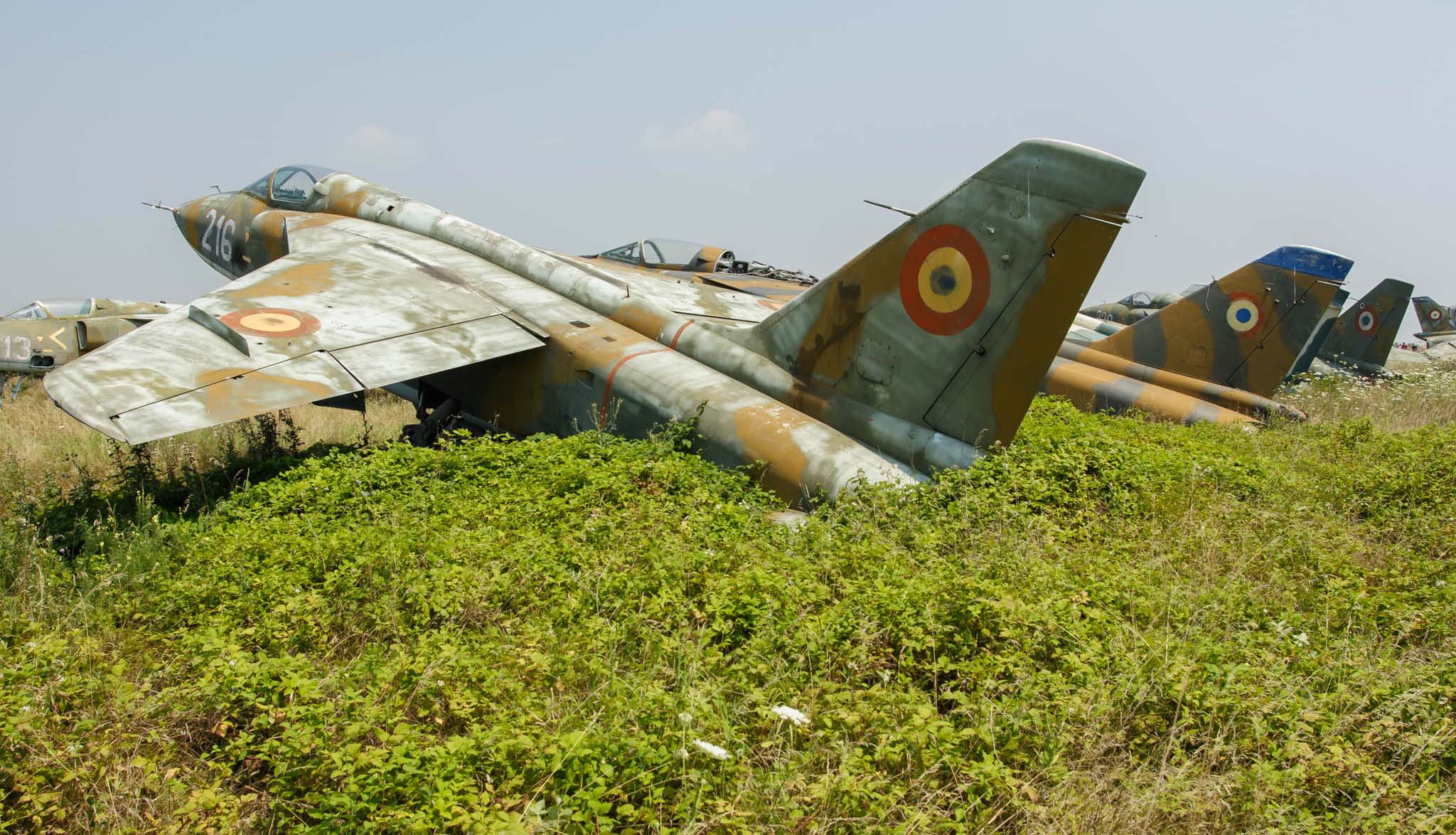 |
| IAR-93B (216) trying to escape the vegetation. |
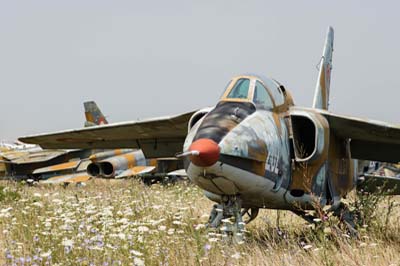 |
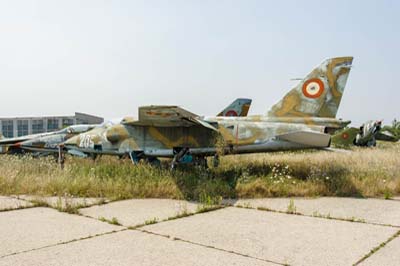 |
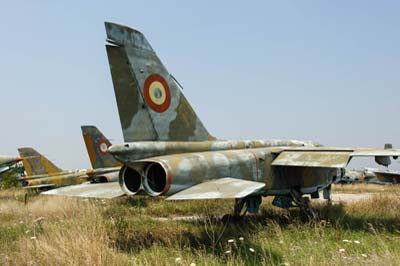 |
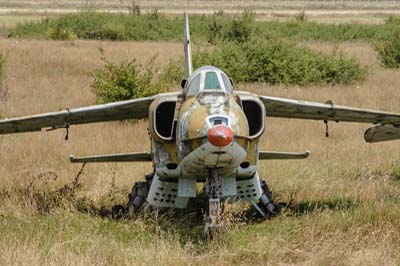 |
| Left to right: IAR-93MBs (202, 205, 20. and 209). |
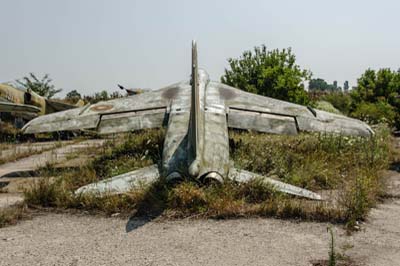 |
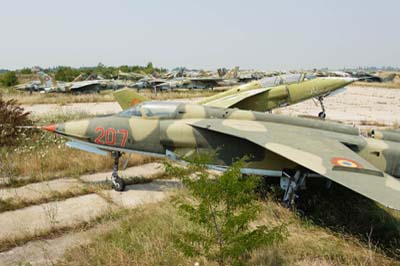 |
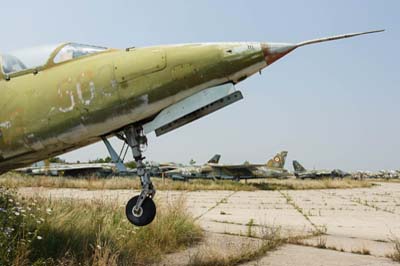 |
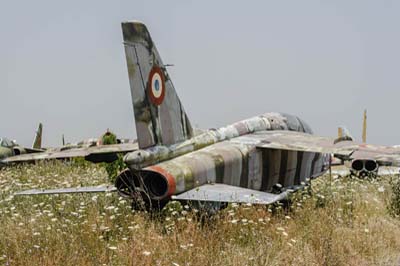 |
| Left to right: IAR-93MB (204? and 207 which had moved to a Timisoara factory by May 2011), IAR-93DCs (603 and 182). |
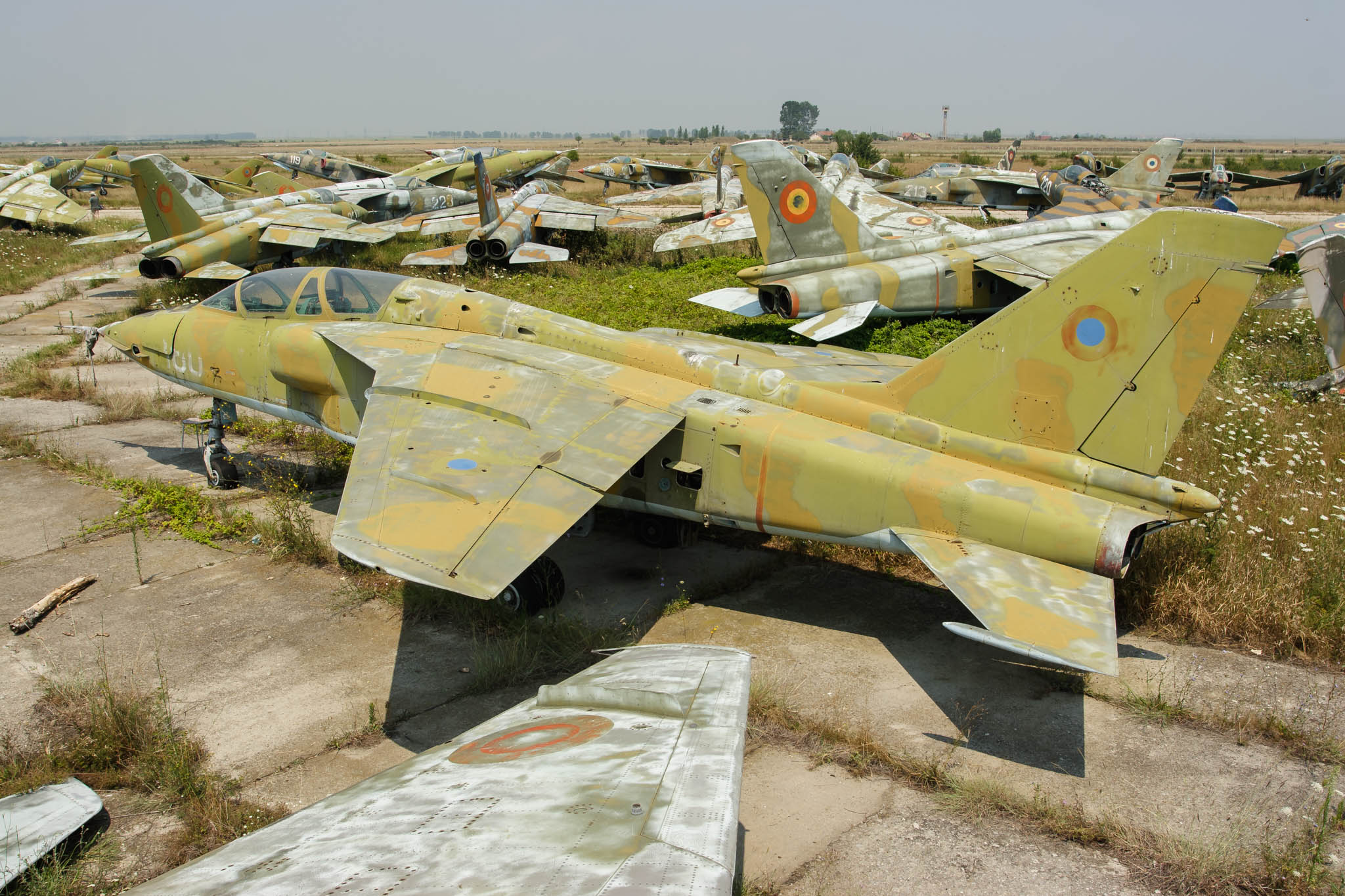 |
| IAR-93DC (180) with many more IAR-93s all awaiting a decision to scrap them. |
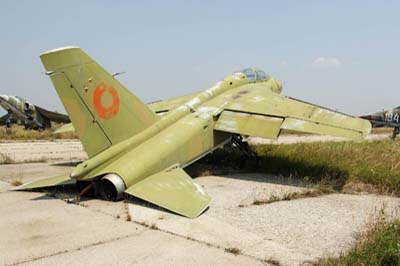 |
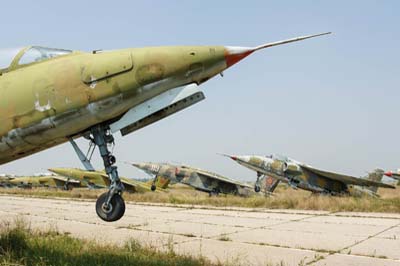 |
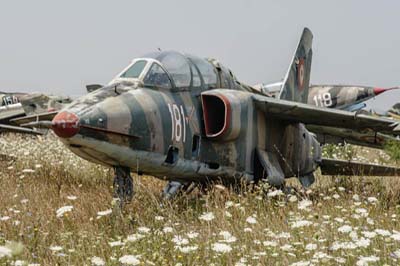 |
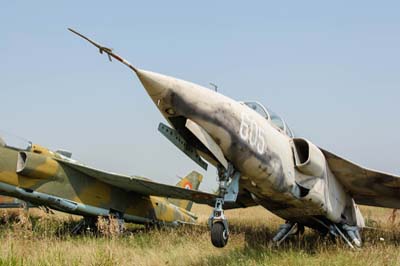 |
| Left to right: IAR-93DCs (604 x2, 181 and 605). |
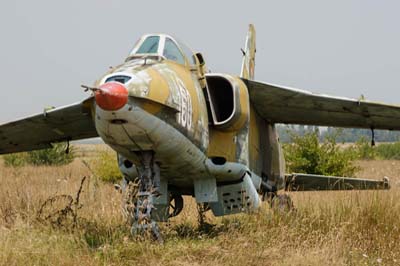 |
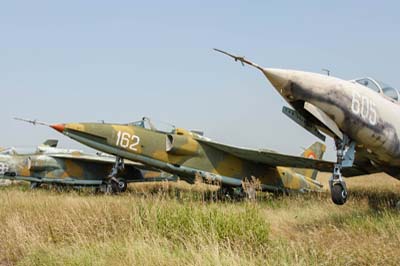 |
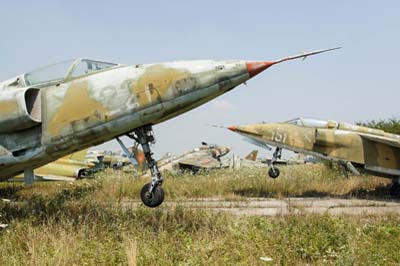 |
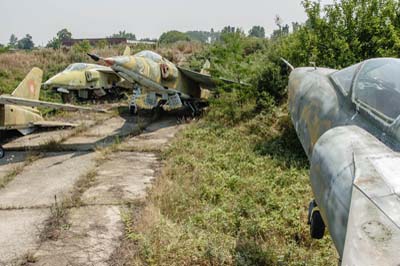 |
| Left to right: IAR-93As (160 and 162) and IAR-93Bs (221 and 241). |
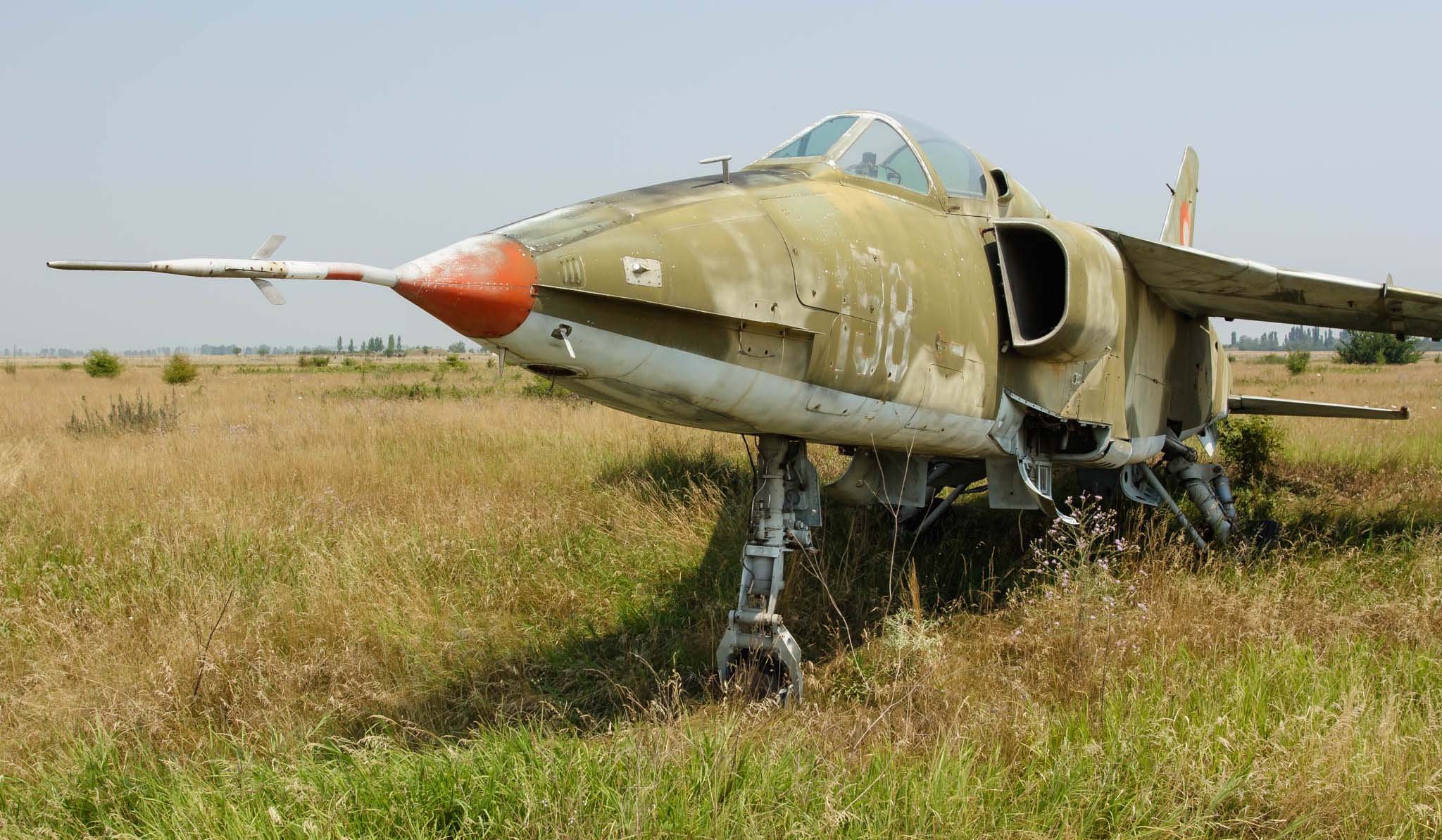 |
| IAR-93A (158). |
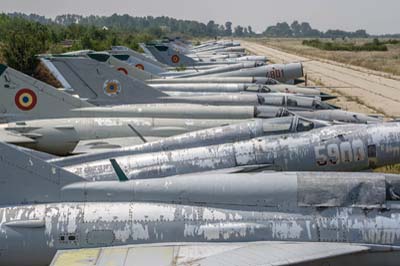 |
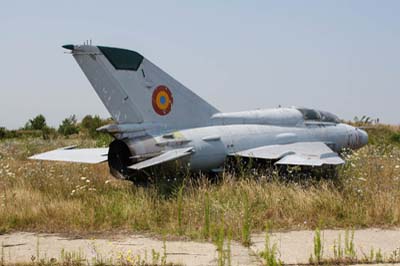 |
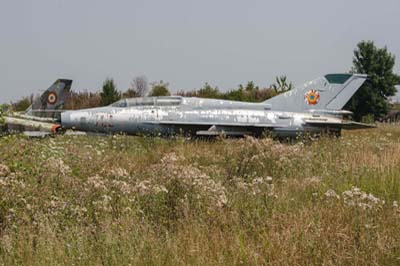 |
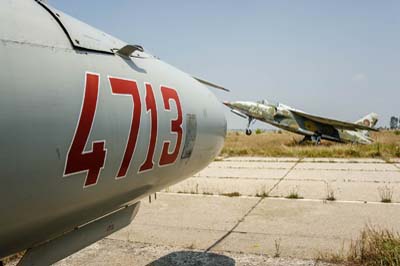 |
| There were over 60 Mikoyan Gurevich MiG-21s in seven variants at Craiova with the 322 Aviation Maintenance Centre (Centrul de Mentenanta 322 Aviatie) in open storage. Left to right: Various MiG-21s along main taxiway, MiG-21US 'Mongol-B' (4703 x2) and MiG-21PFM (4713). |
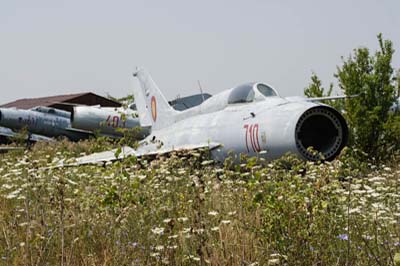 |
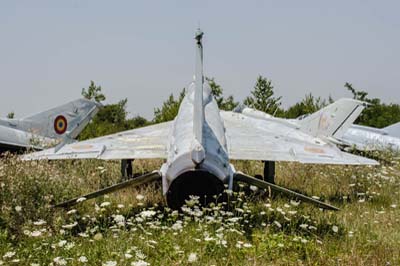 |
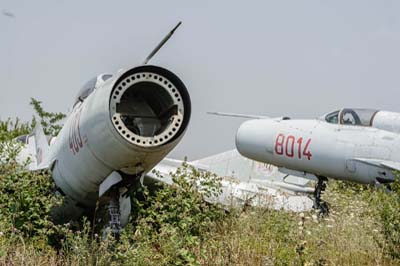 |
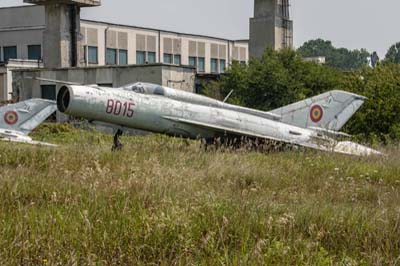 |
| Left to right: Mikoyan Gurevich MiG-21PF (710), MiG-21PFM (8014), MiG-21PF (403) with MiG-21PFM (8014) and MiG-21PFM (8015). |
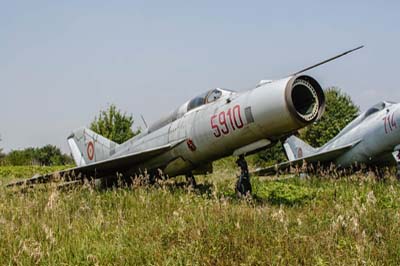 |
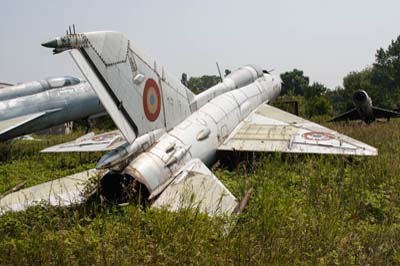 |
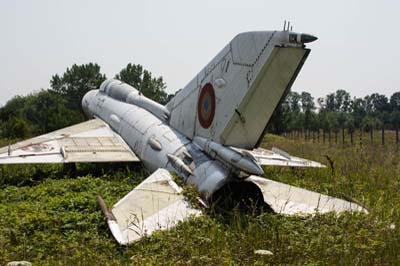 |
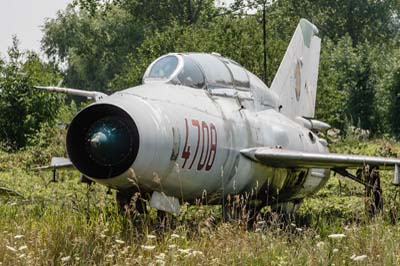 |
| Left to right: Mikoyan Gurevich MiG-21PFMs (5910 x3 and 4708). |
| Photography Note: This was the sixth base on the Romanian Air Force press tour. There were over 60 IAR-93s and around 60 MiG-21s which had been 'put out to grass', apparently 20 IAR-93s and 15 MiG-21s have already been scrapped. Craiova was a creative photographer's dream. The engine-less airframes were scattered around a taxiway and in revetments, some sitting on their tails and offering numerous interesting photographic angles. We were able to wander freely around the whole area, clambering if necessary on the aircraft to get a wide range of perspectives. |